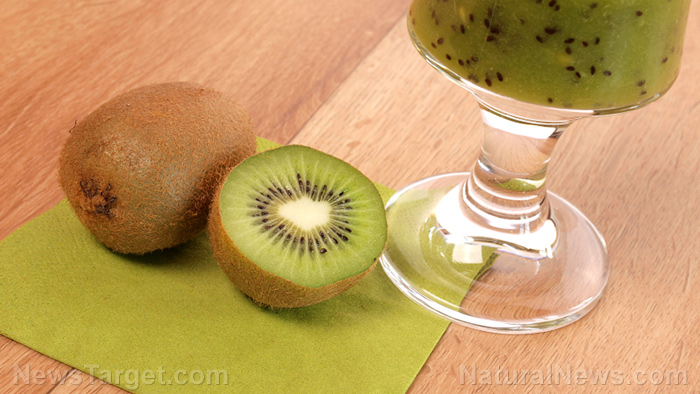
Advertisement
The kiwifruit is a nutrient-dense fruit native to the forests of southwest China. Currently, it is exported worldwide by countries like New Zealand, Italy and Belgium. In the U.S., the kiwifruit is widely cultivated across the state of California.
Traditionally, the kiwifruit began as a wild plant that became domesticated over time. It was originally known as the “monkey peach” because it was a staple food of wild monkeys. Traditional Chinese medicine commonly used kiwifruits to treat fever, restore digestion and prevent viral infections.
The kiwifruit is not widely considered to be a superfood outside of China, but it does provide a variety of health benefits linked to immunity, metabolism and cardiovascular health, such as:
Contains essential nutrients
The kiwifruit is a nutritional powerhouse. A single kiwifruit contains the following macronutrients, vitamins and minerals:
- Calories: 42.1 kcal
- Carbohydrates: 10.1 g
- Fiber: 2.1 g
- Calcium: 23.5 mg
- Magnesium: 11.7 mg
- Phosphorus: 23.5 mg
- Potassium: 215 mg
- Vitamin C: 64 mg
- Vitamin E: 1.0 g
Kiwifruit also contains traces of copper, folate, iron and vitamins A and K.
Boosts immunity
Like most fruits and vegetables, kiwifruit is an excellent source of immune-boosting antioxidants. It also has antibacterial and anti-inflammatory properties that can inhibit the growth of disease-causing bacteria like Escherichia coli and Staphylococcus aureus. Meanwhile, vitamin C also enhances immunity by stimulating the production of antibodies and white blood cells that combat pathogens.
Aids digestion
Dietary fiber can significantly improve digestion and regulate bowel movement. It also supports weight loss due to its effects on satiety. Moreover, dietary fiber inhibits the absorption of excess glucose and cholesterol in the gut.
Promotes cardiovascular health
Kiwifruit is an excellent source of potassium that regulates blood pressure. Its antioxidant content can also reduce the amount of “bad” cholesterol in the bloodstream, thus reducing the risk of heart attack, hypertension, metabolic disorders and cardiovascular disease.
Nourishes the skin
Kiwifruit also contains high amounts of vitamin E, an antioxidant that specifically protects the skin. Vitamin E also stimulates the production of collagen, a protein that maintains the structural integrity of tendons, ligaments, bones and skin.
Lowers the risk of cancer
Kiwifruit contains a high concentration of antioxidants such as flavonoids and carotenoids that can prevent cellular damage caused by free radicals. Antioxidants also inhibit the growth of tumors and induce programmed cell death of cancer cells. Additionally, kiwifruit strengthens the bone marrow, which can become brittle as a result of chemotherapy.
Improves sleep quality
Kiwifruit can also improve sleep quality by stimulating the production of serotonin, a neurotransmitter that regulates the body’s sleep-wake cycle. Serotonin also improves mood and reduces anxiety levels.
Prevents birth defects
Folate is a B vitamin that is linked to a reduced risk of birth defects. It supports cell growth and development, so pregnant women ought to increase folate intake.
Fresh and healthy kiwifruit recipes
If you want to explore the culinary possibilities of kiwifruit, try the following tasty and nutritious recipes.
- Banana, kiwifruit and kale smoothie – Beat the heat with a tall refreshing glass of green smoothie. This recipe takes no more than five minutes to make and uses kiwifruit to give it a sweet kick. Blend bananas, kiwifruits and kale along with milk and add raw honey to taste. Afterward, add crushed ice and blend again until it reaches the desired consistency.
- Dehydrated kiwifruit chips – Ditch the packaged potato chips chock-full of sodium and create your own healthy alternative using kiwifruit. Simply peel the kiwifruits and cut them into 1/4-inch slices. Dehydrate the chips by cooking them in the oven on a very low heat setting. When done, the chips should have a subtle sweetness and a chewy texture.
- Kiwifruit and avocado salsa – Introduce a fresh and sweet twist to the classic tomato salsa by adding kiwifruit slices to a base made of avocado, cilantro, scallions and jalapeno. Serve with flatbread, pasta, potatoes or leafy greens.
Learn more about the refreshing kiwifruit at Fruits.news.
Sources:
Advertisements







